Lexus ES VS VW ID.4 – Specs, Efficiency & Price Comparison
Which model is the better choice – the Lexus ES or the VW ID.4? We compare performance (218 HP vs 340 HP), boot capacity (454 L vs 543 L), efficiency (5.10 L vs 15.80 kWh), and of course, the price (46600 £ vs 34600 £).
Find out now which car fits your needs better!
The Lexus ES (Sedan) is powered by a Full Hybrid engine and comes with a Automatic transmission. In comparison, the VW ID.4 (SUV) features a Electric engine and a Automatic gearbox.
When it comes to boot capacity, the Lexus ES offers 454 L, while the VW ID.4 provides 543 L – depending on what matters most to you. If you’re looking for more power, you’ll need to decide whether the 218 HP of the Lexus ES or the 340 HP of the VW ID.4 suits your needs better.
There are also differences in efficiency: 5.10 L vs 15.80 kWh. In terms of price, the Lexus ES starts at 46600 £, while the VW ID.4 is available from 34600 £.
Compare all the key specs now and find out which model fits your lifestyle best!
Lexus ES
The Lexus ES represents a blend of luxury and comfort, offering a smooth driving experience that is characteristic of the brand. With its elegant design and meticulously crafted interior, it provides a serene environment for both driver and passengers. The inclusion of advanced safety features and cutting-edge technology enhances its appeal, ensuring that every journey is not only enjoyable but also secure.
details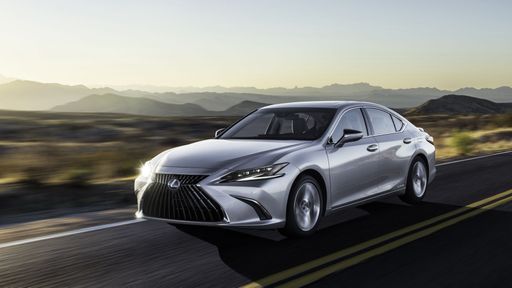 @ toyota-media.de
@ toyota-media.de
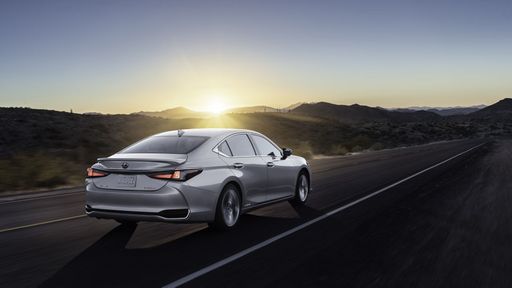 @ toyota-media.de
@ toyota-media.de
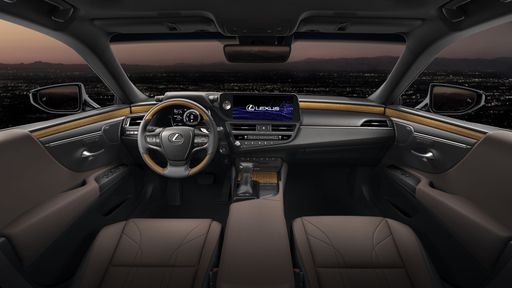 @ toyota-media.de
@ toyota-media.de
VW ID.4
The VW ID.4 represents Volkswagen's commitment to the electric vehicle market, combining contemporary design with sustainability. Its spacious interior and intuitive technology make it an attractive choice for those seeking comfort and innovation in an eco-friendly package. With a focus on electric performance and practicality, this car is set to be a popular option among environmentally-conscious drivers.
details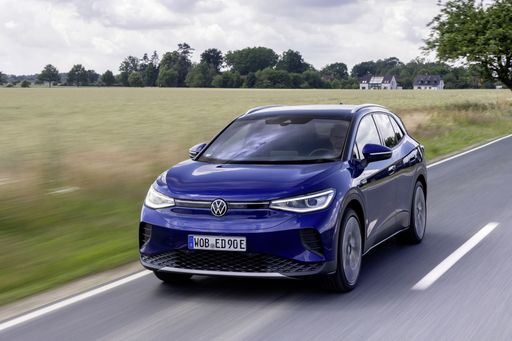 @ Volkswagen
@ Volkswagen
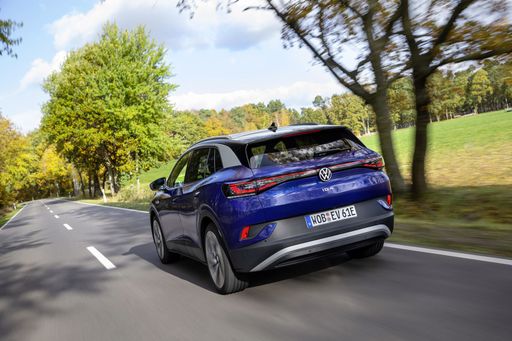 @ Volkswagen
@ Volkswagen
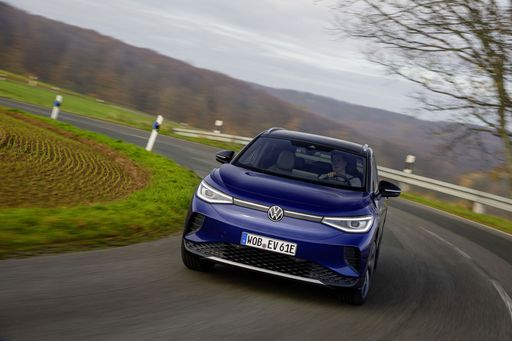 @ Volkswagen
@ Volkswagen
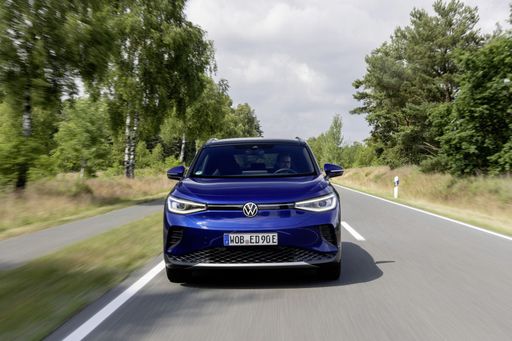 @ Volkswagen
@ Volkswagen
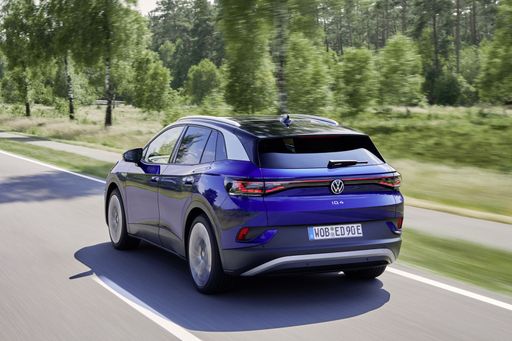 @ Volkswagen
@ Volkswagen
 @ Volkswagen
@ Volkswagen
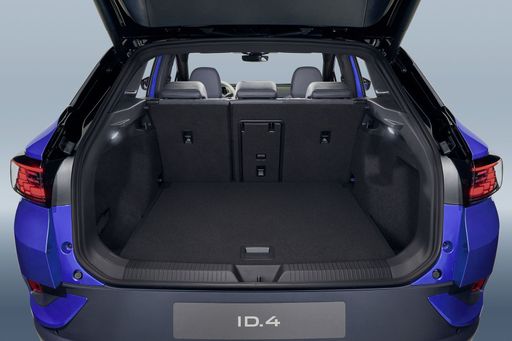 @ Volkswagen
@ Volkswagen
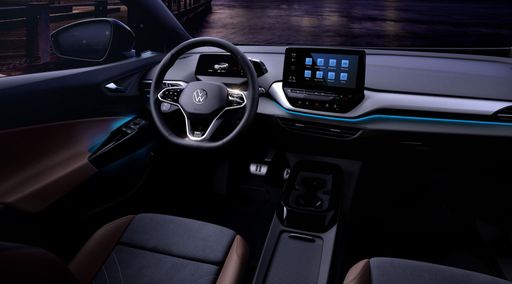 @ Volkswagen
@ Volkswagen

|

|
|
|
|
Costs and Consumption |
|
|---|---|
|
Price
46600 - 59300 £
|
Price
34600 - 46700 £
|
|
Consumption L/100km
5.10 L
|
Consumption L/100km
-
|
|
Consumption kWh/100km
-
|
Consumption kWh/100km
15.8 - 16.8 kWh
|
|
Electric Range
-
|
Electric Range
357 - 572 km
|
|
Battery Capacity
-
|
Battery Capacity
52 - 77 kWh
|
|
co2
115 g/km
|
co2
0 g/km
|
|
Fuel tank capacity
50 L
|
Fuel tank capacity
-
|
Dimensions and Body |
|
|---|---|
|
Body Type
Sedan
|
Body Type
SUV
|
|
Seats
5
|
Seats
5
|
|
Doors
4
|
Doors
5
|
|
Curb weight
1680 kg
|
Curb weight
1979 - 2261 kg
|
|
Trunk capacity
454 L
|
Trunk capacity
543 L
|
|
Length
4975 mm
|
Length
4582 - 4584 mm
|
|
Width
1865 mm
|
Width
1852 mm
|
|
Height
1445 mm
|
Height
1619 - 1634 mm
|
|
Payload
470 kg
|
Payload
509 - 541 kg
|
Engine and Performance |
|
|---|---|
|
Engine Type
Full Hybrid
|
Engine Type
Electric
|
|
Transmission
Automatic
|
Transmission
Automatic
|
|
Transmission Detail
-
|
Transmission Detail
-
|
|
Drive Type
Front-Wheel Drive
|
Drive Type
Rear-Wheel Drive, All-Wheel Drive
|
|
Power HP
218 HP
|
Power HP
170 - 340 HP
|
|
Acceleration 0-100km/h
8.90 s
|
Acceleration 0-100km/h
5.4 - 9 s
|
|
Max Speed
180 km/h
|
Max Speed
160 - 180 km/h
|
|
Torque
-
|
Torque
310 - 679 Nm
|
|
Number of Cylinders
4
|
Number of Cylinders
-
|
|
Power kW
160 kW
|
Power kW
125 - 250 kW
|
|
Engine capacity
2487 cm3
|
Engine capacity
-
|
General |
|
|---|---|
|
Model Year
2024
|
Model Year
2023 - 2024
|
|
CO2 Efficiency Class
C
|
CO2 Efficiency Class
A
|
|
Brand
Lexus
|
Brand
VW
|
Lexus ES
Explore the Alluring Elegance of the Lexus ES
The Lexus ES continues to uphold its reputation as a beacon of luxury and innovation in the automotive world. Known for its graceful design and premium feel, the ES series offers an impressive blend of performance and efficiency. With a focus on technical prowess and sustainability, this model is a testament to Lexus's commitment to excellence.
Performance and Efficiency: A Seamless Blend
At the heart of the Lexus ES is its full-hybrid technology. The 218 PS powertrain, featuring a 4-cylinder engine, harmoniously integrates a combustion engine with an electric motor to provide a remarkable drive. The ES achieves its impressive power output of 160 kW while maintaining a commendable fuel consumption of 5.1 L/100 km. This balance between power and efficiency is manifested in its acceleration from 0 to 100 km/h in just 8.9 seconds, powering seamlessly through a cost-effective CVT-gearbox with front-wheel drive. Despite its athletic capabilities, the ES remains well within the bounds of responsible emissions with a CO2 output rated at 115 g/km.
Design and Comfort: A Statement of Luxury
The Lexus ES's exterior is crafted as a testament to sophistication. Its sleek silhouette measures 4975 mm in length, 1865 mm in width, and 1445 mm in height, with a striking aesthetics that demands attention. The interior offers spacious comfort with seating for five, highlighted by high-quality materials and meticulous attention to detail. Additionally, the boot space offers a generous 454 litres capacity, ensuring practicality is not compromised.
Technological Advancements and Features
Equipped with the latest in automotive technology, the Lexus ES features a suite of advanced driver-assistance systems for enhanced safety and convenience. From its responsive infotainment system to the intuitive controls, each feature has been designed with the driver in mind. For those seeking variety, the car is available in several trim levels including the Automatik, Business Edition Automatik, Executive Automatik, and Luxury Automatik, offering a tailored experience for every discerning driver.
Cost of Ownership
With prices ranging from €54,350 to €69,200, the Lexus ES provides a competitive edge in the luxury segment with its multitude of features. The running costs are also reasonable, with expense estimates ranging from €1,289 to €1,497 per month and a cost per kilometre between 51.6 and 59.9 cents. This cost efficiency makes it a feasible choice for those looking to balance luxury with practicality.
Conclusion: A Hybrid of Innovation and Style
The Lexus ES stands as a prime example of how hybrid technology can transform the driving experience, merging the thrill of performance with the benefits of fuel efficiency. With its state-of-the-art features and impeccable build, the ES is a remarkable vehicle for those who seek luxury and innovation on the road.
VW ID.4
The VW ID.4: A Leap into the Electric Era
As electric vehicles steadily capture the automotive market, the Volkswagen ID.4 stands as a testament to impressive innovation and functionality. Combining eco-friendly technology with the practicality of an SUV, the VW ID.4 is designed to appeal to both environmentally conscious drivers and those seeking versatility in their vehicle choice. In this article, we'll explore the significant technical features and innovations that make the ID.4 a remarkable option in the electric vehicle market.
Powertrain Options: Efficiency Meets Performance
The Volkswagen ID.4 offers a range of powertrain options to suit various driving preferences. With power outputs ranging from 170 to 340 PS and torque figures between 310 and 679 Nm, the ID.4 provides a versatile driving experience. Whether you opt for the responsive rear-wheel drive or the enhanced stability of the all-wheel-drive configuration, each model guarantees smooth and efficient performance.
With an emphasis on efficiency, the ID.4 boasts a consumption rate between 15.8 and 16.8 kWh/100km, making it an economical choice for those mindful of their energy usage. Furthermore, the ID.4 offers a robust driving range, with potential distances reaching up to 572 km, reducing the need for frequent recharging and allowing for longer journeys with peace of mind.
Charging and Battery Technology
Efficiency isn't the only strong suit of the ID.4—the battery technology is equally impressive. With a battery capacity ranging from 52 to 77 kWh, Volkswagen ensures that drivers can match their vehicle choice to their lifestyle needs. Charging is straightforward and adaptable, providing convenience whether at home or on the move.
The ID.4 is designed for compatibility with a variety of charging infrastructure, ensuring rapid charging times and minimal downtime. This thoughtful engineering ensures that drivers spend more time on the road and less time waiting at charging stations.
Design and Practicality: An SUV with a Mission
The VW ID.4 embraces its SUV heritage, offering ample interior space and practicality without compromising on style. With its dimensions ranging from 4582 to 4584 mm in length, 1852 mm in width, and up to 1634 mm in height, the ID.4 ensures a comfortable and spacious environment for up to five passengers.
Additionally, the ID.4 provides a generous boot space of 543 litres, making it ideal for families or those with an active lifestyle requiring extra storage. The careful consideration in design extends to weight efficiency, with the vehicle's own weight between 1979 and 2261 kg helping to enhance its overall drive dynamics and efficiency.
Innovative Features and Technology
Volkswagen has equipped the ID.4 with a suite of advanced technological features designed to enhance both safety and driving enjoyment. These features include intuitive infotainment systems, driver-assistance technologies, and connectivity options tailored to modern expectations.
One standout attribute of the ID.4 is its commitment to sustainability with a CO2 efficiency class of A, demonstrating Volkswagen's dedication to reducing environmental impact without sacrificing performance or functionality.
Conclusion: The Future is Electric
The VW ID.4 is a shining example of how traditional automotive excellence adapts to contemporary demands for sustainability and efficiency. Whether you are an enthusiastic early adopter of electric vehicles or simply someone in search of a reliable and advanced SUV, the ID.4 offers a compelling package designed for the future.
For anyone ready to embrace the electric revolution, the Volkswagen ID.4 represents a significant step forward—a combination of forward-thinking technology, efficient design, and an emphasis on practicality. This makes the ID.4 a worthy consideration for any discerning driver looking to invest in their next vehicle.
The prices and data displayed are estimates based on German list prices and may vary by country. This information is not legally binding.
